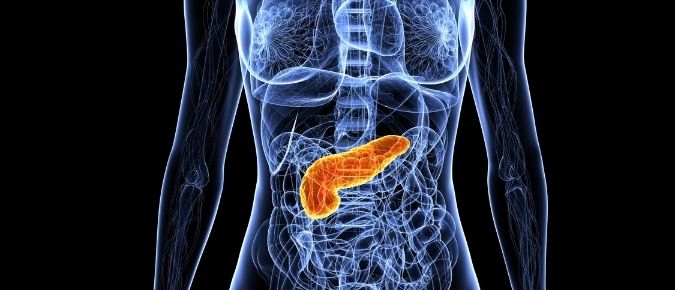
November marks Pancreatic Cancer Awareness Month. In recognition of this month, here are six things you should know about pancreatic cancer.
1. What is pancreatic cancer?
Pancreatic cancer occurs when malignant cells form in any part of the pancreas. The pancreas is the organ located behind the stomach, and it makes some of the body's hormones and some of the enzymes needed to digest food.
2. Who gets pancreatic cancer?
About 3300 Australians are diagnosed with pancreatic cancer each year. It is estimated to be the 11th most common cancer in males and eighth most common in females.
3. Types of pancreatic cancer
There are two main types of pancreatic cancer.
- Exocrine tumours: These make up more than 95% of pancreatic cancers. The most common type is adenocarcinoma which begins in the lining of the pancreatic duct.
- Pancreatic neuroendocrine tumours (NETs): These make up about 5% of all pancreatic tumours and can occur in any part of the pancreas.
4. Risk factors for pancreatic cancer
Risk factors that can increase a person's chances of developing pancreatic cancer include:
- smoking
- obesity
- ageing
- type 2 diabetes
- pancreatitis
- certain types of cysts in the pancreatic duct known as intraductal papillary mucinous neoplasms
- drinking too much alcohol
- family history and inherited conditions
- workplace exposure to some pesticides, dyes or chemicals.
5. Symptoms of pancreatic cancer
In its early stages, pancreatic cancer rarely causes symptoms. Symptoms may not appear until the cancer is large enough to affect nearby organs or has spread.
Common symptoms are:
- jaundice
- indigestion (heartburn)
- appetite loss
- nausea with or without vomiting
- unexplained weight loss
- pain in the upper abdomen, side or back
- changed bowel motions such as diarrhoea and severe constipation
- newly diagnosed diabetes.
Some pancreatic NETs will also cause symptoms such as blurred vision, too much sugar in the blood or a drop in blood sugar, excessive thirst, increased urination and reflux.
These symptoms can also occur in other conditions so speak to your doctor if you have any of these symptoms.
6. Diagnosing pancreatic cancer
Tests to diagnose pancreatic cancer may include blood tests, imaging scans, and tissue sampling (biopsy).
The tests you have will depend on the symptoms, type and stage of pancreatic cancer. Test results will show what type of pancreatic cancer it is, where in the pancreas it is, and whether it has spread outside the pancreas.






